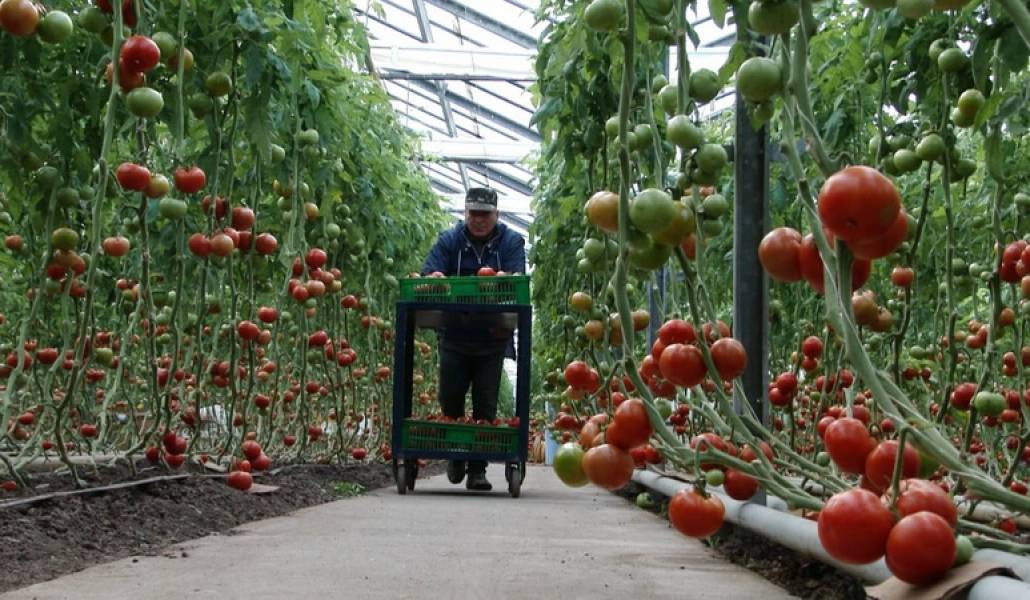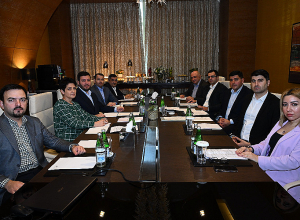Hazy future of business activities in Armenia (video)

Five years ago, the Musoyans opened a greenhouse in Armenia. The 3000 meters of land gives the family from 700 to 1500 kg yield every week. The volume depends on the season. One of the serious problems the family faces today is the sale of the produce because of tomatoes imported from Turkey. "Our tomatoes have ripened, but we do not collect them because we cannot sell them cheaper than they cost,” says Lusine Musoyan. She then enumerates the expenses because of which the price of tomatoes is so high in Armenia. “We pay salaries, buy chemicals and organic materials, pay for gas and energy. One kilogram of tomatoes costs 1000-1100 drams. Roughly speaking, if we try to make a comparison, only 2-3 tomatoes are left from the entire box that you see there. The rest goes out,” she adds. There were 950 small and medium-sized greenhouses in Armenia in 2005-2006. Many of them have closed in recent years because they could not resist competition. In order to prevent the closure of more companies the Hothouse Association of Armenia is attempting to find markets outside the country. It has signed contracts with wholesale trade centers in Moscow and Tyumen. Each of them expressed readiness to purchase 20 tons of tomatoes every week and 40 tons in the season. “These small and mid-size greenhouses that we have cannot provide the volume that they want. Each time you can collect one lorry and send to them. On the other hand, there is the problem of the Upper Lars crossing,” says Poghos Gevorgyan, Executive Director of the Hothouse Association of Armenia. “Neither officials nor those who should support the business fully understand the problems of small businesses. Many think SMEs encounter superficial problems and do not try to find out the reasons for their closure,” says Gagik Makaryan, Chairman of the Republican Union of Employers of Armenia (RUEA). The number of active economic entities in Armenia ranged between 70 000 and 80 000 in different years. Their number is said to stand at 91 000 in recent years. 55 000-56 000 of them are micro enterprises, 25 000 are small companies and 20 000 are large businesses. The number of medium-sized enterprises is 550. “The most surprising is that we have thousands of micro and small businesses but the number of medium-sized businesses does not even reach 1000. This is the mirror of the economy. It shows that micro-enterprises are born and die as micro-enterprises and small businesses always remain small businesses. The number of medium-sized enterprises has always been 2-3 percent. The question is why a micro-enterprise cannot grow into a medium-sized enterprise, why the chain of small, medium-sized and large enterprises does not work in our country,” Mr. Makaryan adds. A total of 10 029 entrepreneurs and enterprises were dissolved in the country in 2015. Gagik Makaryan is convinced that the trend will continue in 2016. Currently, thousands of small enterprises have filed petitions for bankruptcy and are waiting for court hearings. Many are cases when a business with good management, good resources and idea ends in failure. “One group invests in business the money stolen from the state, the other takes out a loan to start a business,” he stresses. Argishti Shamiryan presents his business to the State Employment Service Agency of the Ministry of Labor and Social Affairs. In 2009, he turned his parental home in Garni into a guest house. At first, the building hosted his friends and relatives, now he has decided to offer services to tourists. I pay high taxes and loan interests. Generally speaking, the best profitability index makes 25-30 percent of investments whereas in Armenia 24 percent is paid in taxes. This is a great sum which needs to be lowered to allow businesses to survive and not look for [alternative] ways to bypass the law,” he says. Over 120 beneficiaries from different communities of the country have received training and individual counseling under the project "Assistance to uncompetitive persons in the labor market for entrepreneurial activities." Should their business plans be deemed as competitive, they will also receive financial support in the maximum amount of 1 mln drams. The Business Support Center has observed that during the implementation of programs start-ups frequently start businesses without a definite business plan. In the meantime, the Musoyans are trying to save their business. “Our tomatoes appeared in this state because of unexpected frosts of September. The plant survived stress and we were not well prepared for it. These tomatoes are not spoiled, they had a tough time this year, developed scars and we took steps to rejuvenate them,” said Lusine Musoyan. The optimum temperature for tomatoes is 18°C to ripen and change their colour but the entrepreneurs often lower the greenhouse temperature to 13° to save energy and cut the costs. They do their best to save the greenhouse. Their dream is to turn Armenia into an industrialized country where, in addition to vegetables and flowers, people will also make greenhouse constructions and sow seeds. Perhaps, one day people from other countries will arrive in Armenia to buy vegetables in the same way as they go to the Netherlands to buy flowers.



